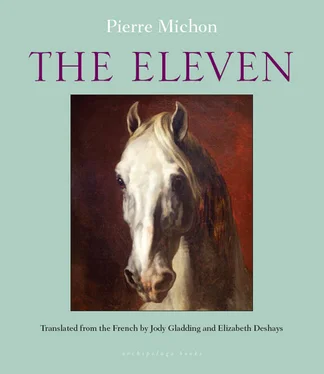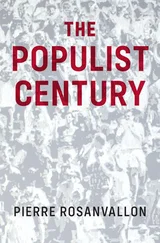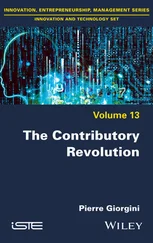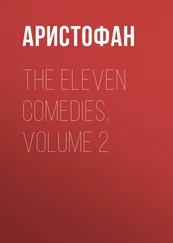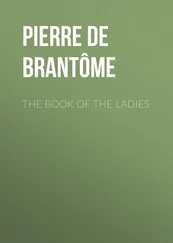It existed all the more so because, among the timid provincial Anacreons, there was the son of a Limousin who had miraculously sprung from ten out of twelve months of negritude.
And yet perhaps not so miraculously after all: because it is fairly safe to assume that it happened from time to time since the beginning — since the cardinal-duke had raised the battalions of Limousins, more or less by cudgel, more or less by coin, to build fortifications, dikes, towers of Babel well cemented with Limousin cement, blood and mud, off La Rochelle, which amounts to saying in the open sea, where he, the cardinal-duke Richelieu, standing on the dikes above the Limousins in his iron and crimson, thought that all the Huguenots in the world would come crashing to their deaths forever, exiting History — which would truly happen in a sense; thus, since after this business at La Rochelle, the Limousins had acquired something like a taste for building, in any case, a habit of being Negro slaves somewhere other than in the Limousin ten months out of twelve, since the beginning, it is reasonable to think that in each generation it happened in the ratio of one in a hundred, a thousand, ten thousand — it happened that one Limousin sprang out of the ranks, was noticed by a cardinal-duke, by his mistress or coachman, because of qualities that chance distributes evenly enough among men, even among Limousins, even in the terrible time of gentle living, and that he played his hand well, that is, he did not set foot in the Limousin again and began to live like a man — well, as he imagined men must live.
And that was what happened to Corentin, the father of the young poet.
The elder Corentin — Corentin la Marche , let us call him, since that was his nickname as a mason, his mark of infamy or nobility, whichever, and besides I do not remember his first name, if he ever had one — coming year after year since he was fifteen from the forests of the Marches, from which the faithless Huguenot had plucked him just as the cardinal-duke who hated Huguenots had plucked his grandfather, Corentin may have had those qualities, beauty, a keen mind, or a noble heart, that coachmen or mistresses notice; and I do not know who noticed him, grabbed him by the skin of his neck, and pulled him from the lot, but we do know that in 1725 at the Orléans gates, near the Tourelles bridge just beyond the Loire, he had a flourishing wine business and a vinegar factory; and gossip has it that it was neither the attentions of a bishop’s mistress or coachman that set him up and helped him flourish in this business, but his own simple merit and labor — and therefore also, of course, his even greater villainy, because the social successes that are attributed to merit and labor alone, in those times as in our own, are infinitely more traceable to villainy than to the ability to catch the eye of mistresses or the whip of coachmen. Oh yes, he owed this small fortune to his merit, that is, to the iron grip of his stranglehold on the unfortunate Limousins, his own compatriots; he owed it to his very great knowledge, to excelling in the discipline that consisted of a marvelous expertise in cutting, sweetening, and supplementing with distilled turnips the contents of those demijohns that served the Limousins as viaticum, eucharist, literature, and naked duchess, and in which the Limousins knew so well how to wet their switchblades to make them flash, the day of the Lord; because God is a dog and the lowly can only rise by treading on the lowlier. And so there beside the Loire he had his gloomy poison dispensary, those makeshift retorts and casks, where he worked at multiplying wine, increasing the local rotgut volumetrically, just as, in the same era and in almost identical retorts, the Messieurs de Saint-Germain and de Cagliostro were working to multiply gold; and in the end it was gold that he was increasing too, as is always the case in those dispensaries, as had the old faithless Huguenot under the sky with water and stones and with the same cement as Corentin’s, the good old eternal Limousin cement, blood and mud kneaded in black wine; as Tiepolo himself may have worked, or would work, to multiply gold with invisible Limousin cement, in this case Bavarian or Slav, or Piedmont, because the Carrara marble had to be moved, hoisted, cut, mortared, coated a fresco for the great magisterial joy, the joyous reversion of gold into azure ceilings — but for Corentin there was no visible effect (because the bloody binges of the Limousins, the day of the Lord, cannot decently be called an effect), no great stones visible beneath iron knots, no captive sky reflected between great stones: it was gloomy, mole-like, behind the casks in a stinking back courtyard.
In this back courtyard he had a wife, of whom we know nothing except that she bore François Corentin, whom we have just seen, or almost seen, reading anacreontic trifles at a literary gathering; because this child had fine qualities as well, like his father. They became apparent very early, with his curiosity and intelligence; and as always happens in those situations, in the century of iron and gentle living as in our own, since nothing has changed a hair in that regard, of which we may be proud, he was very quickly noticed and taken in hand by the appropriate party, that is, by some good Jesuit or Oratorian Father, subjected to strict discipline and good training, read Latin like you or me or His Royal Highness the Dauphin of the House of France, and at fifteen adopted the collar and tonsure — well, the symbolic tonsure of those times of handsome priests.

I ask you, Sir, to focus your attention on this fact: that knowing Latin when you are the Dauphin of the House of France and when you are the son of Corentin la Marche are not one and the same thing; in fact, they are two diametrically opposed things: because while the first, the Dauphin, reads in each page, each inflection, each hemistich, a glorious confirmation of what is and what must be, of which he is part, and moreover, while he looks up between hemistiches through the window of the Tuileries and sees the great fountain in its great ornamental pool and beyond Fame with her trumpet mounted on the horses of Marly, the other, François Corentin, who lifts his head to see casks and the wine-soaked dirt floor of the cellar, sees in those same inflections, those same sentences that flow, trumpeting, all by themselves, both the magisterial triumph of what is and the negation of himself, who is not; there he sees that what is, even if and especially if what is seems beautiful, crushes him as one crushes a mole under the heel.
From that, Sir — and also from the elder Corentin of course not knowing how to read, in fact hardly knowing how to speak and only in patois, excelling only in the skillful blending of purple wines and white alcohols; from his presence, his life, being in and of itself, for one who reads Virgil, an inexpiable shame (which of course is an inexpiable solecism when one reads Virgil, when one truly, deeply reads Virgil and not in the bewildered way of a Limousin schoolboy, but that is another matter); from the father, deprived of language, also being deprived of what is called intelligence; and furthermore had he had intelligence and had he, too, sworn that God was a dog, from the shapeless form it would have taken that could be transcribed something like Diàu ei ùn tchi , a kind of sneeze — from that, everything follows, everything that interests us: the intellectual curiosity, the will, the literary astringency, and finally the impeccable reversion of the patois insult into little anacreontic sonnets; the great Limousin knife completely concealed in versifiable bouquets of flowers; and, with all these talents and the collar of the little novice priest, the visits, at eighteen, to the dull literary salon in Orléans near the Burgundy gates, in that salon when he read his verses all the heads of the good priests with their wooden snuffboxes nodding, self-satisfied, not wanting to see the great knife; finally in that same salon the inevitable encounter with Suzanne who, as you already know, loved anacreontic verse in her absentminded way, who also, you may well suspect, loved desire because of the ten leagues of visible satisfied desire from Orléans to Montargis, and who, you may equally suspect, fell nervously but entirely in love with the Limousin Anacreon. Because curiously, that secret indignity, that power of denial that François Corentin bore within him and hid under the small collar, that impression that one is a mole and must hide it at any cost under any plumage, eagle or peacock, or dove, that burden, that rending renders a man fervent, impassioned, beautiful in the eyes of women.
Читать дальше
